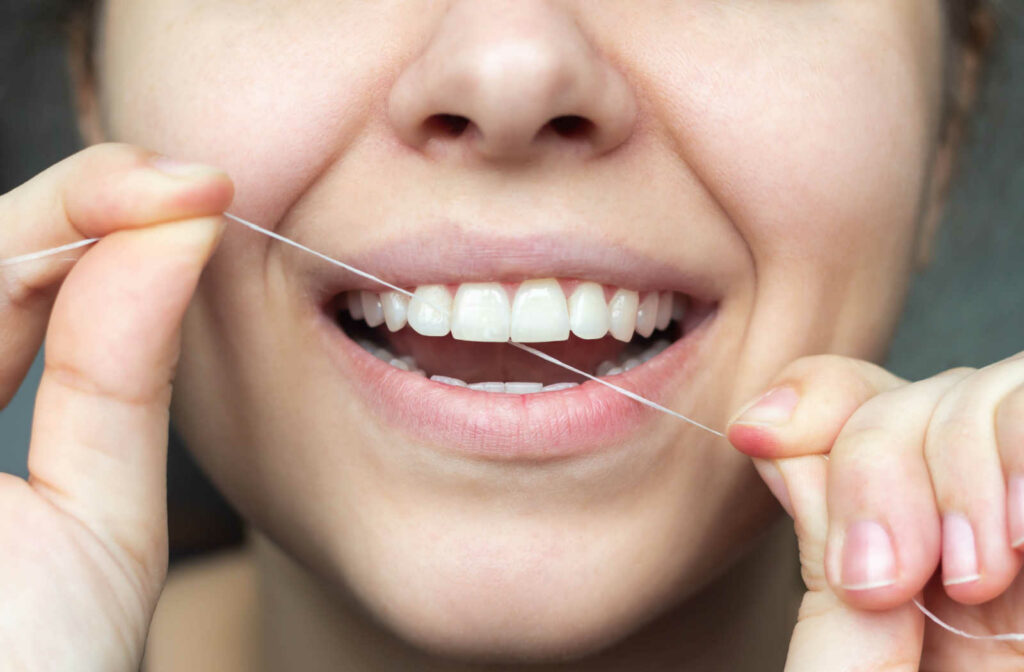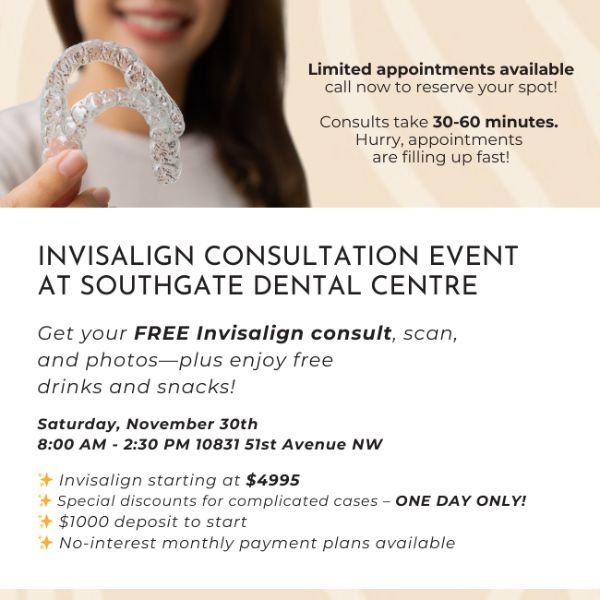We all know that a solid dental care routine is the foundation of strong oral health. Consistent brushing and flossing is just as important as having regular dental exams and cleanings, but is it possible to brush your teeth “too much?” And if it is possible, how does over-brushing affect your oral health over time?
Southgate Dental Centre is here to help you and your family care for your oral health using comprehensive techniques and personalized strategies. If you believe your current brushing and flossing routine isn’t protecting your teeth from the effects of plaque and tartar buildup, give our team a call!
We’ll be happy to walk you through our range of teeth cleaning approaches so you can keep sharing the pearly-white smile you love. Request your appointment with the team at Southgate Dental Centre today!
How Is Brushing Too Much Bad?
When it comes to brushing your teeth, it is possible to have too much of a good thing.
You see, the outer surface of your teeth is protected by a protective layer of enamel that helps shield your teeth. However, if you’re brushing your teeth too much or too hard, you might start damaging this protective layer and exposing your teeth to cavity-causing bacteria.
If you eat or drink something very acidic, please avoid brushing your teeth immediately after because there is a chance you might damage your enamel as well.
If you’re brushing your teeth too hard, you may start to damage the gum tissue around your teeth, causing them to recede. Receding gums can cause tooth sensitivity when brushing, eating, or drinking, as well as increase your risk of developing cavities.
How To Brush Your Teeth
Proper brushing techniques and strategies can help minimize the risk of damaging the enamel on your teeth, but these approaches can change from person to person. For personalized advice on brushing your teeth, please speak with our dentist when you come in for a dental exam and cleaning.
We recommend brushing your teeth at least twice a day, but we can recommend a schedule when you visit us for an appointment.
Picking a Toothbrush
Deciding which type of toothbrush to use is probably the most exciting part of caring for your teeth because there are so many different options. You could use a traditional manual brush, or you may opt for an electric one to provide an extra boost of cleaning power.
There is no wrong toothbrush to use, so long as it can easily reach different areas of your mouth, has soft bristles, and fits comfortably in your hand, but some doctors might recommend an electric toothbrush if you:
- Struggle with arthritis
- Have developmental difficulties
- Struggle with plaque buildup
- Wear orthodontic appliances like braces
Choosing a Toothpaste
Deciding on toothpaste is your next step. The type of toothpaste you use will depend on your current oral health situation and what you may need to do to keep your smile clean and healthy. Some toothpaste can help address issues like gingivitis or even tooth sensitivity.
Regardless of what type of toothpaste you want to use, we always recommend using toothpaste that also contains fluoride.
Brushing Your Teeth
Now that we’ve got our toothbrush and toothpaste, let’s walk through how to brush your teeth properly:
- Place a small amount of toothpaste, about the size of a pea, on your toothbrush.
- Holding the toothbrush at a 45-degree angle towards the gum tissue, gently brush the surface of your teeth and gums with short strokes.
- We suggest brushing for at least 2 to 3 minutes.
- Brush your tongue to remove stuck-on food, drink, and plaque.
- Spit the toothpaste out–do not swallow toothpaste!
After brushing your teeth, you may use a mouthwash to rinse the remaining bacteria and freshen your breath. Wait 10–20 minutes after brushing your teeth before using mouthwash to let the fluoride in the toothpaste do its wonders. Please speak to our dentist to see what type of mouthwash may be right for you.

Why Is Flossing Important?
Flossing, or now what we call interdental cleaning, is just as important as brushing your teeth, but only about a quarter of Canadians (28%) actually floss at least 5 times a week. Even though brushing your teeth might seem sufficient, flossing can seriously reduce your risk of developing oral health problems by cleaning away food and drinking debris your toothbrush might not reach.
Flossing is more effective at reducing bad breath than brushing.
If you have trouble with flossing your teeth regularly, speak to our dentist so we can help find a solution.
Picking the Right Interdental Cleaner for You
There are a few different techniques you can use. Some of them include:
- Traditional floss
- Dental tape
- Pre-threaded flossers
- Water picks
- Toothpicks
- Proxabrushes and assorted interdental tools
Regardless of your strategy, choose floss that suits your unique needs. For example, if you struggle with arthritis or carpal tunnel syndrome, you might wish to use a pre-threaded flosser or a water pick to help clean the spaces between your teeth.
How to Use an Interdental Cleaner
How you floss your teeth can change depending on your chosen technique, but the idea is the same: clean the areas between your teeth that your toothbrush can’t reach. Our dentist can recommend a strategy suitable for your needs when you visit for an appointment.
We also recommend flossing your teeth before you brush since brushing can clean away the particles left over on your teeth after you floss.
Have Regular Dental Exams & Cleanings
Finally, the next step towards preserving your oral health is making sure you have regular dental exams and cleanings. Dental cleanings can help clean away built-up tartar that your toothbrush can’t remove, managing your risk of developing cavities and gum disease.Brushing, flossing, and professional cleanings provide the comprehensive dental care you need to keep your smile shining brightly. If you need advice on what type of toothbrush to use or how to brush your teeth, request an exam with us today!



